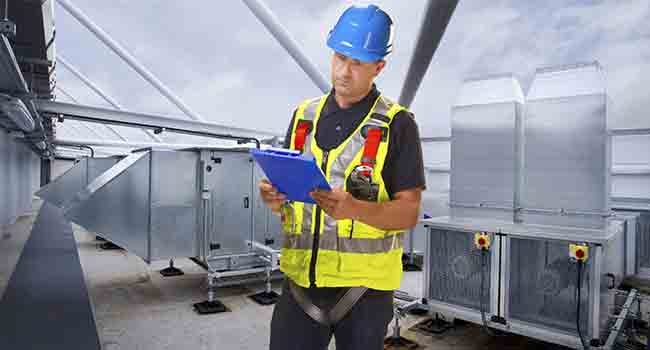Since the invention of the first electric furnace in 1861, the HVAC industry has undergone immense development. Wood burning has been replaced by advanced AI-based automated heating systems as companies in the sector strive to create highly intelligent, automated solutions. The influx of new players has further propelled the game of innovation, leading to the emergence of higher-grade technologies.
Technology has been a major driving force behind the growth of the HVAC industry as the demand for energy-efficient solutions increases. According to a recent market report, the global HVAC system market is projected to expand from USD 202 billion in 2020 to 277 billion by 2025.
The latest HVAC technology is taking great strides towards sustainability and energy saving. The introduction of Variable Refrigerant Flow (VRF) systems has been a major breakthrough in this regard. VRF systems are highly efficient and have the capability to cool or heat different areas of the building while using minimal energy. Additionally, they are much quieter than traditional systems and require lesser maintenance.
The use of smart thermostats is also on the rise. These thermostats are able to learn the habits of the occupants and can adjust to their needs. This helps to optimize energy consumption and enhance the comfort level of the occupants.
Other technologies, such as geothermal heat pumps and solar thermal systems, are also being increasingly used. Geothermal heat pumps are highly efficient and can help to save a substantial amount of energy. Solar thermal systems are also gaining popularity as they can generate energy from solar radiation, thus reducing the dependence on fossil fuels.
The advancements in HVAC technology have enabled us to create energy-efficient, sustainable, and comfortable living and working spaces. With the right technology and a commitment to sustainability, we can ensure a bright future for the HVAC industry.
1. Smart HVAC Technology- Automation is the Way Forward!
Smart HVAC technology is rapidly becoming the new norm in home and commercial building automation. Smart HVAC systems utilize the Internet of Things (IoT) to connect a home’s HVAC system to the Internet, allowing users to control their systems from anywhere. Smart HVAC systems also provide users with real-time data about their energy usage and can automatically adjust settings based on user preferences. This allows users to save money on their energy bills by only running the system when needed and at optimal temperatures. Smart HVAC systems are also capable of providing users with notifications when maintenance is needed, which can help prevent expensive repairs in the future. Smart HVAC technology is revolutionizing the way people manage their HVAC systems and is paving the way for a more automated and efficient home and office environment.
2. Geothermal HVAC Systems – Sustainable Technology
Geothermal HVAC systems are an innovative and sustainable technology that provides an efficient and cost-effective solution to heating and cooling needs. Geothermal systems work by utilizing the earth’s natural heat transfer capabilities to heat and cool a building. By tapping into the consistent temperature of the earth, geothermal HVAC systems can provide a comfortable and energy-efficient environment year-round. Geothermal systems are also environmentally friendly, as they do not use any fossil fuels to operate and require minimal maintenance. Additionally, geothermal HVAC systems are highly cost-effective, with lower up-front installation costs and long-term savings in energy bills.
3. Ductless HVAC Systems – Efficiency & Savings
Ductless HVAC systems are becoming increasingly popular for their energy efficiency and cost savings. These systems don't require the installation of ductwork, which can save you up to 30% on your energy bills. Additionally, ductless systems are easier to install and maintain than traditional HVAC systems since they require less space. They also provide you with more control over the temperature in each room of your home, allowing you to create personalized zones. Finally, ductless systems are quieter than traditional HVAC systems, making them ideal for those who prioritize comfort and peace, and quiet.
4. Thermally Driven Air Conditioning – Go Solar
Thermally driven air conditioning systems are becoming increasingly popular, especially in warmer climates. These systems use solar energy to power the compressor, fan, and other components. This makes them an environmentally friendly option for cooling homes and businesses. Solar energy is an abundant and renewable energy source, and thermally driven air conditioning systems are very efficient, so they can be used to save money on cooling bills. Additionally, they are relatively easy to install, and they require minimal maintenance.
5. Dual Fuel Heat Pump Technology – Efficient HVAC
Dual fuel heat pump technology combines the advantages of an electric heat pump with the efficiency of a gas furnace. This hybrid system is designed to provide improved energy efficiency, better comfort, and lower energy bills. With a dual-fuel heat pump, the heat pump runs when temperatures are above freezing, and the gas furnace takes over when temperatures drop below freezing. This hybrid heating system provides more consistent comfort levels and energy savings compared to a traditional all-electric heat pump system.
6. Zoned HVAC System – Customize Temperature According to an Area
A zoned HVAC system is a high-efficiency heating and cooling system that uses multiple thermostats to control the temperature in specific areas or zones of a home or building. With a zoned system, you can customize the temperature in each area according to the needs of the occupants. Zoned systems are ideal for homes with multiple stories and for large commercial buildings since they can provide energy efficiency and comfort in each zone. This is accomplished by controlling the airflow in each zone so that areas that don't need cooling or heating are not wasting energy. Zoned systems can also help reduce energy bills by allowing you to set different temperatures in various parts of the building or house.
Quick Links
Commercial Heating Furnace Replacement Cost Seattle
Commercial Air Conditioning Replacement Cost Seattle
Commercial Heating Services Near Me Seattle
Commercial Heating Contractors Near ME Seattle

